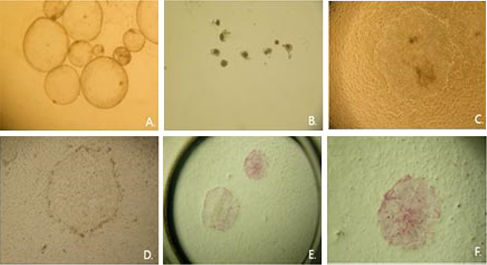Cancer and developmental biology

Head Professor : Sangho Roh
Professors
Overview
The basic processes of the human body development are affected by a number of diseases. Many developmental regulation genes and mechanisms regulate physiological actions of the adults. If it is not regulated properly, pathological conditions are caused. Understanding of genes and proteins is rapidly increased. However, it is required to have more understanding and conduct more basic research on human body developmental regulation mechanisms which may cause cancers if they are not properly regulated.
Recently introduced new genomic technologies can monitor expression of more than 20,000 genes at the same time. These technologies do not only broaden understanding of physiological pathways but also identify genes which cause diseases by mutations. In addition, development of stem cell biology has changed the fundamental paradigm related to development and differentiation of cells. Various kinds of stem cells such as embryo, adult and induced pluripotent stem cells are being used for various basic and applied research associated with regenerative medicine and human development.
In the major of Cancer and developmental biology, students will study human development, stem cell, signal transduction, gene regulation, cell differentiation, aging, tumor development and relevant diseases and general contents covering regenerative medicine, cell therapy and relevant application areas.
Goals of education
Biological life phenomena are regulated by several genes and molecular mechanisms. If it is not regulated properly, pathological conditions are caused.
Understanding of genes and proteins is rapidly increased. However, it is required to have more understanding and conduct more basic research on development, growth, differentiation and aging of tissues composed of human body. Recent genomic technologies and proteomics technologies can monitor expression of entire genes and proteins at the same time. Development of these technologies does not only broaden understanding of normal life phenomena, but also presents ways to easily study the functions of genes causing diseases if they are mutated and the interactions with relevant genes.
The purpose of courses of cancer and developmental biology is to understand development, growth, differentiation and aging of tissues being composed of human body such as craniofacial tissues as well as various craniofacial diseases including oral cancer caused by defected processes. Furthermore, we would like to teach general contents such as signal transduction and gene regulation.
Contents of education
- Understanding the molecular basis of biological phenomena
- Understanding of molecular mechanisms of proliferation, differentiation, aging and cell death of cells being composed of the craniofacial tissue.
- Understanding of the causes and molecular mechanisms of various tumors occurring in the craniofacial tissue
- Understanding of development, growth and aging of human body focused on the craniofacial tissue
- Understanding of current clinical practice and its application about embryo, adult and cancer stem cells
- Understanding of differentiation mechanism of various oral cells from embryo and adult stem cells
- Understanding of causes and molecular mechanisms of various dental molecular diseases including oral cancer
- Understanding of research techniques of oral cancer, molecular cellular biology and genomics
- Understanding of experimental techniques related to developmental biology by using various animal models
Main research areas
- Study on molecular mechanisms of growth, differentiation and aging processes of oral epithelial cells and osteoclasts
- Study on molecular biological and cellular biological mechanisms of growth, differentiation and aging processes of oral epithelial cells and osteoclasts
- Study on oral cancer : Study on the carcinogenic mechanism of oral cancer
- Study on establishment and differentiation of various embryonic stem cells in various animal models
- Study on the mechanisms of various embryonic induction and development by using development engineering techniques
- Study cell reprogramming and reverse induction pluripotent stem cell production


